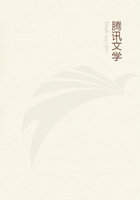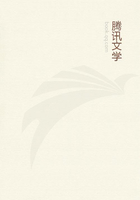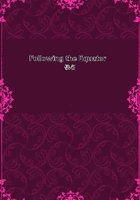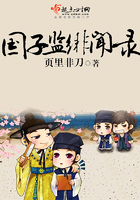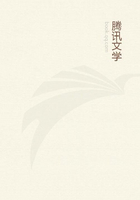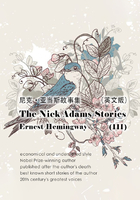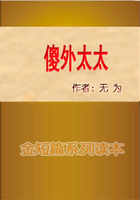Modern Monsters: The Phoenix Basilisk Unicorn Salamander There is a set of imaginary beings which seem to have been the successors of the "Gorgons, Hydras, and Chimeras dire" of the old superstitions, and, having no connection with the false gods of Paganism, to have continued to enjoy an existence in the popular belief after Paganism was superseded by Christianity. They are mentioned perhaps by the classical writers, but their chief popularity and currency seem to have been in more modern times.
We seek our accounts of them not so much in the poetry of the ancients, as in the old natural history books and narrations of travellers. The accounts which we are about to give are taken chiefly from the Penny Cyclopedia.
THE PHOENIX
Ovid tells the story of the Phoenix as follows: "Most beings spring from other individuals; but there is a certain kind which reproduces itself. The Assyrians call it the Phoenix. It does not live on fruit or flowers, but on frankincense and odoriferous gums. When it has lived five hundred years, it builds itself a nest in the branches of an oak, or on the top of a palm-tree. In this it collects cinnamon, and spikenard, and myrrh, and of these materials builds a pile on which it deposits itself, and dying, breathes out its last breath amidst odors. From the body of the parent bird a young Phoenix issues forth, destined to live as long a life as its predecessor. When this has grown up and gained sufficient strength, it lifts its nest from the tree (its own cradle and its parent's sepulchre) and carries it to the city of Heliopolis in Egypt, and deposits it in the temple of the Sun."Such is the account given by a poet. Now let us see that of a philosophic historian. Tacitus says, "In the consulship of Paulus Fabius (A.D. 34), the miraculous bird known to the world by the name of Phoenix, after disappearing for a series of ages, revisited Egypt. It was attended in its flight by a group of various birds, all attracted by the novelty, and gazing with wonder at so beautiful an appearance." He then gives an account of the bird, not varying materially from the preceding, but adding some details. "The first care of the young bird as soon as fledged and able to trust to his wings is to perform the obsequies of his father. But this duty is not undertaken rashly.
He collects a quantity of myrrh, and to try his strength makes frequent excursions with a load on his back. When he has gained sufficient confidence in his own vigor, he takes up the body of his father and flies with it to the altar of the Sun, where he leaves it to be consumed in flames of fragrance." Other writers add a few particulars. The myrrh is compacted in the form of an egg, in which the dead Phoenix is enclosed. From the mouldering flesh of the dead bird a worm springs, and this worm, when grown large, is transformed into a bird. Herodotus DESCRIBES the bird, though he says, "I have not seen it myself, except in a picture.
Part of his plumage is gold-colored, and part crimson; and he is for the most part very much like an eagle in outline and bulk."The first writer who disclaimed a belief in the existence of the Phoenix was Sir Thomas Browne, in his Vulgar Errors, published in 1646. He was replied to a few years later by Alexander Ross, who says, in answer to the objection of the Phoenix so seldom making his appearance, "His instinct teaches him to keep out of the way of the tyrant of the creation, MAN, for if he were to be got at some wealthy glutton would surely devour him, though there were no more in the world."Dryden, in one of his early poems, has this allusion to the Phoenix:
"So when the new-born Phoenix first is seen, Her feathered subjects all adore their queen, And while she makes her progress through the East, >From every grove her numerous train's increased;Each poet of the air her glory sings, And round him the pleased audience clap their wings."Milton, in Paradise lost, Book V, compares the angel Raphael descending to earth to a Phoenix:
"Down thither, prone in flight He speeds, and through the vast ethereal sky Sails between worlds and worlds, with steady wing, Now on the polar winds, then with quick fan Winnows the buxom air; till within soar Of towering eagles, to all the fowls he seems A Phoenix, gazed by all; as that sole bird When, to enshrine his relics in the Sun's Bright temple, to Egyptian Thebes he flies."THE COCKATRICE, OR BASILISK
This animal was called the king of the serpents. In confirmation of his royalty, he was said to be endowed with a crest or comb upon the head, constituting a crown. He was supposed to be produced from the egg of a cock hatched under toads or serpents.
There were several species of this animal. One species burned up whatever they approached; a second were a kind of wandering Medusa's heads, and their look caused an instant horror, which was immediately followed by death. In Shakespeare's play of Richard the Third, Lady Anne, in answer to Richard's compliment on her eyes, says, "Would they were basilisk's, to strike thee dead!"The basilisks were called kings of serpents because all other serpents and snakes, behaving like good subjects, and wisely not wishing to be burned up or struck dead, fled the moment they heard the distant hiss of their king, although they might be in full feed upon the most delicious prey, leaving the sole enjoyment of the banquet to the royal monster.
The Roman naturalist Pliny thus describes him: "He does not impel his body like other serpents, by a multiplied flexion, but advances lofty and upright. He kills the shrubs, not only by contact but by breathing on them, and splits the rocks, such power of evil is there in him. It was formally believed that if killed by a spear from on horseback the power of the poison conducted through the weapon killed not only the rider but the horse also. To this Lucan alludes in these lines:

